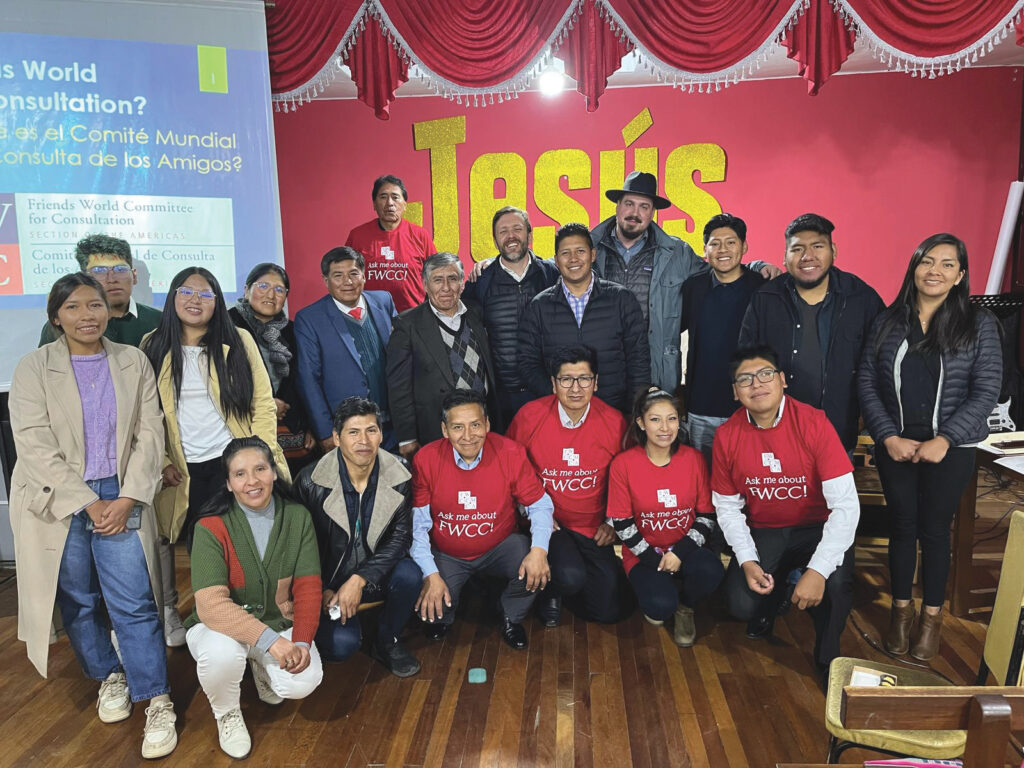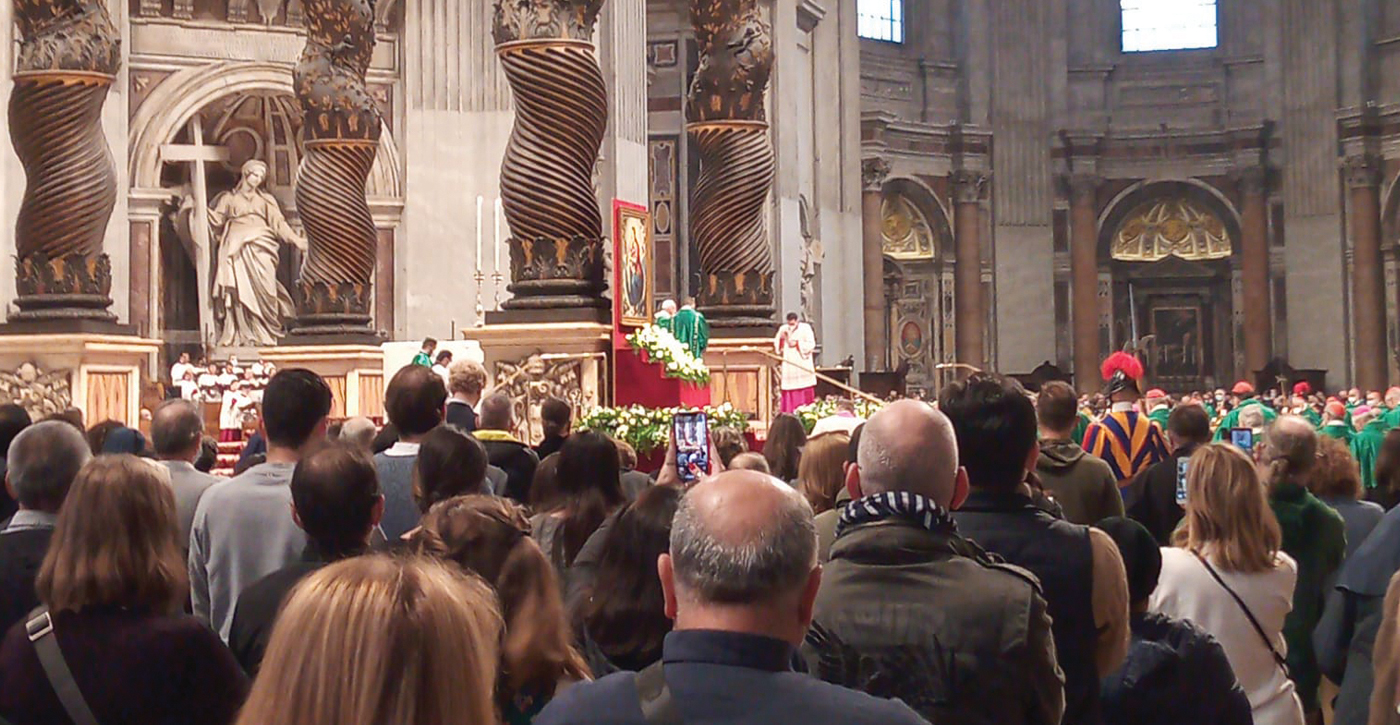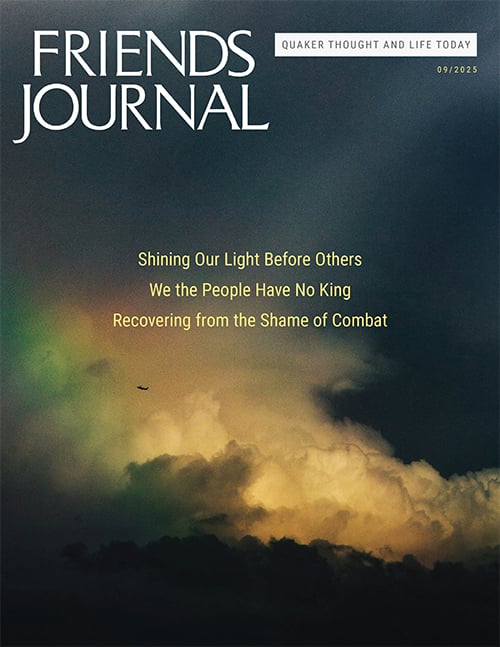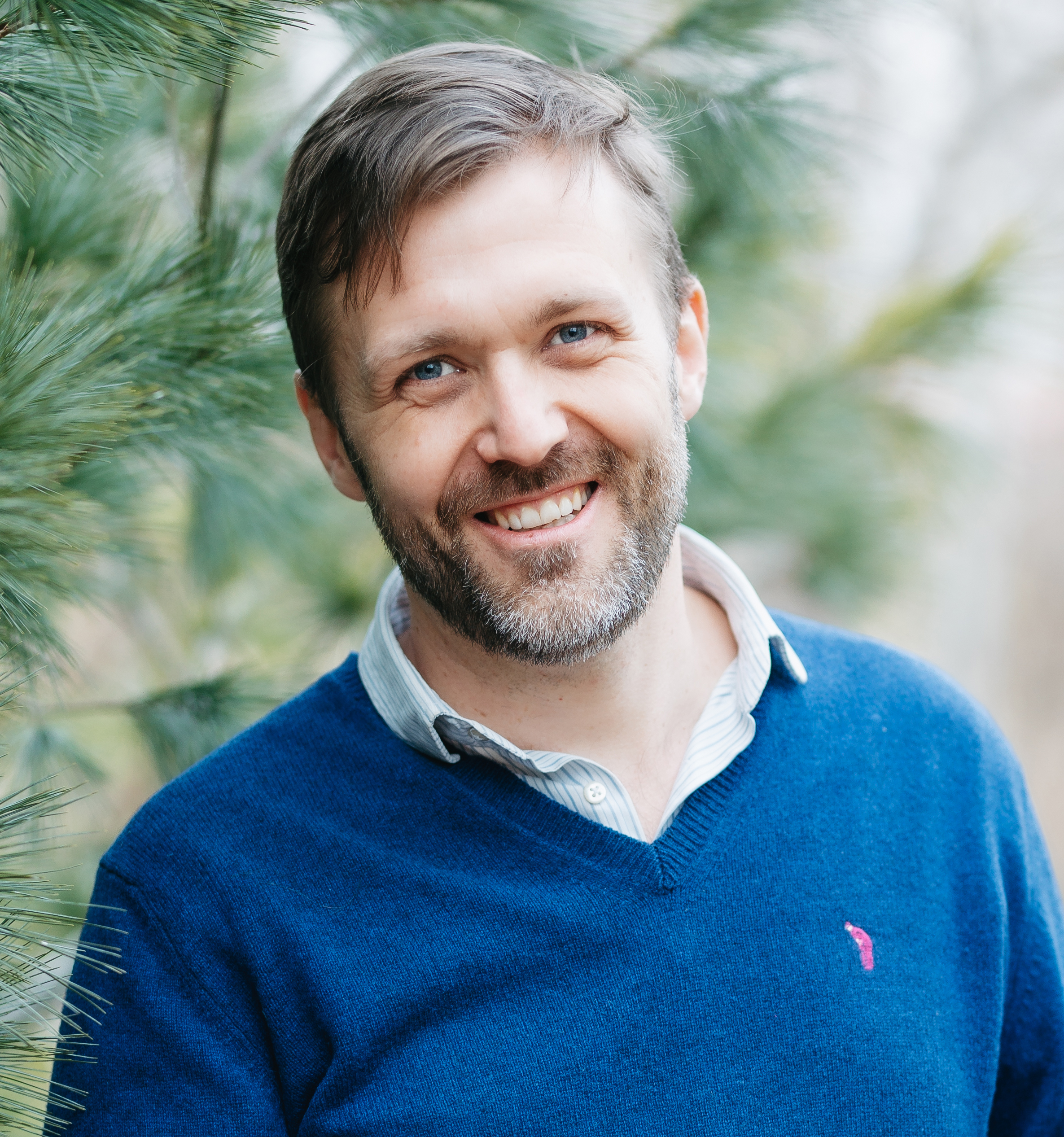A Quaker’s Thoughts on the New American Papacy
The seagull, the smoke, the similarities with last year’s sleeper hit Conclave, and then there was the announcement. Even though he is, in fact, only the first North American pope, the interviews with his brother—and his hot dog preferences—further the intrigue. In my first year as executive secretary of the Friends World Committee for Consultation (FWCC) Section of the Americas, the breathless newscycle caught my attention in a way I did not expect. But what exactly was drawing my attention?
One reason the news resonates with me is I’ve lived the majority of the last papacy as “an American abroad,” passing almost a decade in Italy on one of the roads to Rome. Over all that time so close to the seat of Catholic power, I never felt tempted to convert. I watched Pope Francis preside over Mass in St. Peter’s in 2021, and my experience of the event only reconfirmed my personal identity as a Quaker. As an important and distant figure, he presided over a standard liturgy before a huge crowd during a global pandemic. I did not feel very moved by what he actually said, though I searched for some sense of spiritual connection. I can’t remember any of his words. Surrounded by the vast wealth and opulence of the basilica, I certainly saw the spectacle but missed the immediacy of Quaker worship. Despite many differences of practice across Quakerism, one of the things I have always loved about most of my experiences worshiping with Friends is the sharing of the relative spontaneity and the simplicity of connecting intimately with God. Almost as important is what we do with this spontaneous inspiration; this call to act faithfully can be surprising in its simple power.
It is true that as executive secretary of the Section of the Americas, I now feel a certain weight of leadership responsibility, and this makes me more conscious of major changes in other Christian traditions. Especially with about half of all Catholics living in the Americas, the contemporary and historical influence of the Catholic Church here is all around me. Bound up in the colonial history of this hemisphere, the Americas have a unique relationship with Catholicism, one unlike Italy or the rest of Europe. Living in Italy, it is hard to misconstrue the sheer immediate influence of Catholicism or the pope, right down to the regular dedicated time on all major news outlets to his daily proclamations or actions. But here in North America, many of us seem to have forgotten about the history and current influence of Catholicism, myself included. As a Quaker, I am sensitive to our uniquely Quaker misconceptions. So as I catch up on Quakerism in my section of FWCC, I look for points of reference to my own experience living in Italy. I also listen for the differences described by the many Latin American Friends whose lives are much more regularly affected by the institution of the Church in predominantly Catholic countries here.
Over the last months of serving as executive secretary, I have been struck to learn how some Latin American Friends view Catholicism. For example, when a North American Friend made casual reference to a progressive interpretation of the Bible as “a liberation theology approach,” I was surprised to hear a Central American Friend remark that it was the Church movement that was associated with a civil war in which their family member was killed. Many Friends in Latin America consider themselves members of “Christian” churches, frequently contrasted with Catholicism, which is less associated with Christianity and seen more as providing cultural norms, exercising power, and affecting the state of their daily lives.
How do we grow and change, regardless of what we say or who is elected to lead us? I ultimately found my faith tested in these last years in a way that had nothing to do with Catholicism, perhaps even little to do with Quakerism but everything to do with God meeting me in the darkest places in my life.
In that spirit, I wish to share an experience during a recent trip to visit yearly meetings in Bolivia. I had been invited to celebrate the fiftieth anniversary of Iglesia Evangélica Amigos Central’s autonomy as a national religious body. During my ten-day visit, we spoke about the burgeoning young people’s programs in Bolivian Friends churches, the work of connecting with other Protestant denominations, and the coup in 1975 that drove all foreign missionaries out of Bolivia and pushed Quaker yearly meetings into local leadership overnight. I was welcomed so hospitably and shown so much grace and patience as I sought to learn, listen, and better understand Friends in this part of the world.
Catholicism was very low on the list of topics that we discussed and was not approached until the end of my trip in Bolivia. I learned that it was only recently that Friends in isolated areas in Bolivia could have their marriages in Quaker churches recognized as valid without registering them at the local Catholic parish. I also heard that FWCC’s ecumenical efforts, especially related to visiting the pope and the Vatican, were not always clearly understood or welcomed. Friends in Bolivia referred to a photo of former FWCC general secretary Gretchen Castle apparently bowing in front of Pope Francis as a source of frustration. Wasn’t Quakerism founded to challenge church authority? I heard the concerns and assured them that Quakerism was, in fact, not beholden to the Catholic Church in any way.
And then Pope Francis died during my visit there. I received word that FWCC wished to make a public statement about his legacy and his passing, using another picture of Gretchen and the pope in its publicity. My first reaction harkened back to my experience in St. Peter’s, seeing Pope Francis myself across a crowded room: I am very clear why I am a Quaker. I thought of how early Friends might have related to the modern Church, remembering the 1657 delegation that was sent to convert the pope. While I understood the impact of Francis’s life and legacy—as an important religious figure—I did not think it was appropriate to make public comments from my position or for FWCC. However, a social media post was published by FWCC about his passing, provoking comments from North American Quakers calling Pope Francis “our Quaker pope.” Bolivians questioned those comments. What do Friends mean by “our pope”? Did some Quakers like his politics, his personality, his links to Latin America? Did reforms he made represent some major shift in Church doctrine from Friends perspective?
Returning to the Friends in the Americas after so many years away, I realize I experienced important events like the pandemic, political transitions, and climate disaster in a way that was distant from my home context, far from many familiar points of reference. I perhaps felt physically closer to Pope Francis’s declarations and presence over the years but did not feel at all represented or connected to his words. As our ability to connect with people all over the world has increased, events of the last decade have often divided and isolated us in ways we never thought possible, even on matters of real import like culture, politics, and faith. We fall back on narrow understandings, shorthand phrases, or even platitudes about “all being just so alike,” which diminish our real diversity and uniqueness. Unfortunately, I find this cultural norm especially prevalent in the United States.
I was tested by the experience of living in a Catholic country as a religious minority and found no solace in the words of the pope. I had very little to risk as a privileged class of immigrant living on a beautiful farm. I know he made sermons at Lampedusa where migrant boats land, and he published the Laudato Si encyclical during his papacy, but I generally saw the state of migrant welcome and climate action in Italy become more polarized, less effective, and eventually lead to the re-election of a neofascist regime that offered no support when my farm was destroyed by a climate disaster. This was definitely not the pope’s fault. But if the pope in the very center of his influence and power couldn’t get the Church or State to connect actions with the words he spoke, perhaps the point is something else.
Perhaps this whole question speaks to my condition because I certainly can’t change Quakers’ political positions or even single-handedly speak for or to all Quakers. I wonder what I can do. I wonder what the pope could do. I wonder what any of us can do about the urgent needs of our time. Perhaps all this really isn’t about the pope or the smoke or the seagulls. Perhaps it is more about the power of intimacy and immediacy rather than the power of distant institutions—and within that, the risk of feel-good words from a powerful speaker rather than the sometimes-uncomfortable experiences of spontaneous continuing revelation.

How do we grow and change, regardless of what we say or who is elected to lead us? I ultimately found my faith tested in these last years in a way that had nothing to do with Catholicism, perhaps even little to do with Quakerism but everything to do with God meeting me in the darkest places in my life. I asked myself hard questions about my identity, my politics, and my culture, but I found answers came less as complete sentences and more as a deeper faith in God’s presence and accompaniment in my life.
For me, faith has always been an opportunity for deeper connection. It is not a specific political platform or cultural norm but a mystery that transforms and supports me, especially in times of crisis. The new clerk of our FWCC Americas Section, pastor Nelson Ayala from El Salvador, recently invited our executive committee to consider a passage from the Sermon on the Mount: “Let your light shine before others, that they may see your good deeds and glorify your Father in heaven” (Matthew 5:16). His invitation specifically focused on allowing our Inner Light to shine through our deeds and presence rather than what we might say or profess to believe. We could look earlier in the message to be reminded that Jesus tells us that God speaks through the people we least expect, the least influential or powerful. As I consider leadership among Friends—just as I consider leadership in other faith traditions—I will take Nelson’s invitation into my work. I will try to be conscious of the power and influence of tradition and institutional structure while seeking to maintain immediacy and intimacy. And at risk of contradicting myself, I will remember the popular quote misattributed to Pope Francis’s namesake, Francis of Assisi: “Preach the Gospel at all times. Use words if necessary.”





Thanks for the wonderful thoughts.
Good read with an ecumenical message, I think. I have been in a number places of worship. I did some work for the Carter Center which the project called for a good deal of reading the Qur’an and came across this message, “You can’t have p eace without justice”. There are so many similar messages in most religions. The more I read in this and other religious writings I continue to see that most religions have much more in common than some folks want to admit. That is sad and as Pope Francis taught us “Whom am I to judge”?
Justice=Peace
Ross P. Alander, Quaker
[email protected]
Labor-ManagementRelations.com
Vietnam Vet
Labor-ManagementRelations.com
Tampa, Fl.
Well, maybe all roads do lead to Rome, but apparently not all of them lead to God. However, Rome and Florence are truly wonderful cities to visit. I hope I’ll be able to do it someday.
Thanks Evan for the interesting and wise article. Having read it once, I wanted to read it again, and then again after a while. And every time I found something to think about, to reflect on, including from my own life.
Thank you and good luck in your good deeds.